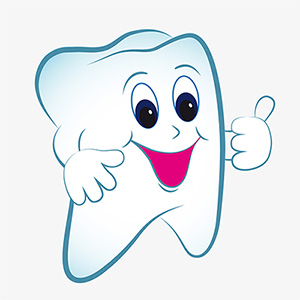Cavity prevention starts with understanding what tooth decay is and how it develops. Cavities are damaged areas in the hard surface of your teeth that develop into small pits or holes. Cavities, also referred to as tooth decay or caries, start in the outer layer of the tooth (enamel) and work their way in deeper towards the nerve. They must be treated by a dentist and do not go away on their own. There is a combination of factors that can cause your teeth to break down, and many ways to prevent cavities too.
What causes cavities?
The start of a cavity begins when plaque forms. Dental plaque is a sticky film that sits on your teeth. It usually happens after eating a lot of sugars and starches and not having proper hygiene. If plaque is left on the teeth too long it will harden into tartar (calculus) above or under the gum line. Tartar cannot be removed easily and becomes an area where bacteria like to live. The bacteria and tartar will remove minerals from the enamel, which is what makes the hard tooth structure become soft. As a result, a cavity forms.

Did you know?
Ways to Prevent Cavities
The number one way to prevent cavities is to have good dental hygiene. Good oral health habits can be done at home and at the dentist’s. Some ways to incorporate cavity prevention into your life is to:
- Visit the dentist regularly. Knowing your cavity risk level is important for taking control of your oral health. The best way to know is to go to your dentist for a comprehensive exam, and keep up on dental checkups.
- Brush your teeth with fluoride toothpaste. Brushing your teeth at least twice a day, and even after every meal will help remove plaque immediately. Using a fluoride toothpaste will help rebuild weakened tooth enamel and can slow down tooth decay.
- Floss daily. Even if you brush your teeth twice a day, if you aren’t flossing you are leaving debris in between your teeth. If the food stays trapped in between the teeth for too long, a cavity will form.
- Use a mouth rinse. Using an alcohol-free mouth rinse is beneficial for everyone, especially people with tooth decay. Your dentist may recommend using one with fluoride if you are someone who has a history of cavities.

- Drink water. Staying hydrated helps prevent cavities because saliva has enzymes in it to fight bacteria. When people are dehydrated they have a dry mouth because there is a lack or saliva production. In addition, some tap water has fluoride in it, and when ingested serves some internal benefits for adults and children.
- Limit snacking and avoid sipping. When you drink beverages other than water, the bacteria in your mouth creates acids that can destroy tooth enamel. Constant sipping and snacking won’t allow for the acid to go away, and will cause the teeth to constantly be under attack.
- Antibacterial treatments. Your dentist may prescribe a special mouth rinse if you are at risk for cavities. This may be due to a medical condition, gum disease, or from having poor oral hygiene in the past. Antibacterial mouth rinses kill harmful bacteria quickly.
- Fluoride treatments. Fluoride treatments may be recommended by the dentist until your risk for cavities is under control. This can be done by visiting the dentist in between cleanings for an application, or having custom trays made and using a prescription fluoride at home.
While all of these are good tips for cavity prevention, the best way to know what interventions to take is to consult with your dentist and address your concerns. Ask your dentist what kind of teeth you have, and if there are any lifestyle changes you should take to improve your oral health
